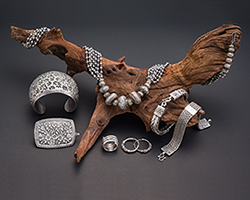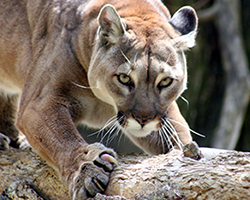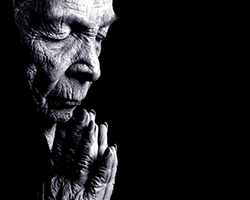 Damaris Browne is a former solicitor whose ancestors include Spanish aristocrats, Somerset horse-dealers, numerous soldiers of various ranks from private to general, and one wife-murderer.
Damaris Browne is a former solicitor whose ancestors include Spanish aristocrats, Somerset horse-dealers, numerous soldiers of various ranks from private to general, and one wife-murderer.
Damaris Browne
Akiowa Finds Love
 “… and so despite all the hardships and the tricks of the envious, the Starlight Weaver and the White Moon Hunter joined hands at the first sunset of the beginning time. And ever after they have lit the night sky, for they wish us to remember their love and happiness, and to love and be happy ourselves. So ends this story.”
“… and so despite all the hardships and the tricks of the envious, the Starlight Weaver and the White Moon Hunter joined hands at the first sunset of the beginning time. And ever after they have lit the night sky, for they wish us to remember their love and happiness, and to love and be happy ourselves. So ends this story.”
Elation filled Akiowa. The conclusion of each of the ten very different stories she’d told the villagers had brought a glorious sense of fulfillment, though the telling of them was the spear’s work, not her own. But the tales of the Starlight Weaver had always been her favourite, told and retold by her mother and aunts, however imperfectly without the spear. And this particular story spoke to her now as never before.
Love was the answer to her searching. To find love was to find happiness.
But hard on the heels of elation came fatigue, for never had the spear crammed her mind and mouth with so many stories, one after the other. Yet the villagers were already calling out with more tales they wanted telling. She would have to continue.
The spear clearly disagreed, for it moved in her hand, pulling itself from the ground. “So ends this Storytelling,” it said through her. “For now,” she added, since the children sitting close by huffed and moaned with disappointment.
Akiowa Finds Belief
 Akiowa stopped well short of the village, expecting the spear to give her the Storyteller’s call, but it urged her further forward. She stopped again at the well-tended fields of beans and maize, then at the nearest dwelling. Still the spear pushed her on.
Akiowa stopped well short of the village, expecting the spear to give her the Storyteller’s call, but it urged her further forward. She stopped again at the well-tended fields of beans and maize, then at the nearest dwelling. Still the spear pushed her on.
The village seemed deserted save for sleeping dogs— no one weaving or making new bows, no children playing, no old folk gossiping in the evening shadows.
Then she found the villagers—fewer than she’d expected—standing before a staff of painted wood. Their totem, she guessed. But if this was a festival, where were the drums, the dancers? Arms outstretched, the villagers didn’t speak, didn’t move. Yet whatever else was missing, joy was clearly present—it shone on their rapt faces.
A strong, warm voice sounded: “Thank you, Earthmaker.”
As the villagers let their arms drop, the spear sent its thrill into Akiowa. She gave the Storyteller’s call.
People started in surprise, but save for a few excited children, who were rapidly called back, no one moved until a tall, handsome man stepped out. Not the headman, for that was surely the old man dressed in lionskins standing behind him. The shaman? But he wore no spirit necklace, and would even a shaman dare take the headman’s place in welcoming her?
“Greetings, Storyteller,” said the man. “I am Pawau, priest to the Believers. We are close to completing our worship. Join us, then we shall eat together and end the day with your stories.”
Akiowa Finds Pleasure
 Akiowa gave a sigh, part relief, part longing.
Akiowa gave a sigh, part relief, part longing.
The spear had kept her in the mountains since leaving the miners, and she’d yearned to see – and walk on – something more pleasurable than deep snow and bare rock. Now at last she was overlooking a lush valley full of chokecherry, black plum and mulberry trees, much like the lands of her own tribe.
There, also, a village like her own: a scattering of earth lodges and rows of squash and beans. Some women worked – tending cooking pots, grinding grain – but most villagers sat in groups, talking. Laughter reached her.
Wistfulness enveloped Akiowa. How contented they looked. How happy. But then, the miners had seemed happy.
“Have they found happiness?” she whispered.
The spear gave no answer, but guided her down towards the village. Her heart lifted as she walked through woods glowing with autumn tints, though dismay grew at the lack of fruit on the trees – even the bitter chokecherries were stripped bare. Fruits were valuable food, but were far more valuable to the birds and beasts who shared the land. Only at a time of great need would her mother have allowed all to be picked.
Akiowa Finds Wealth
 At last! Akiowa had lost track of how long she’d been walking towards the mountains, though awe at their magnificence had long since faded into acceptance. But here were the foothills, and the spear was guiding her towards a great cleft in the rock. Excitement claimed her. The silver miners’ camp had to be close.
At last! Akiowa had lost track of how long she’d been walking towards the mountains, though awe at their magnificence had long since faded into acceptance. But here were the foothills, and the spear was guiding her towards a great cleft in the rock. Excitement claimed her. The silver miners’ camp had to be close.
Since leaving the old man and his wretched independence, the spear had kept her away from villages, and she’d met only a few hunters and a family who were resting alongside their canoes on their journey down a wild river. The spear had given her stories for them, and in return they’d shared food and tales of the miners’ wealth. “If only we were rich,” a child had sighed. “How happy we’d be.”
Of course! Happiness would be found with riches. Akiowa had hugged herself when the spear agreed to take her to the miners, and now she was nearly there.
Akiowa skirted a towering boulder of rock, then stopped in surprise and alarm. Several hundred paces ahead, stretching across the cleft, an enormous wooden barrier rose out of the rocky ground, each thick stake a giant fir. Dismayed at the outlandish sight, she didn’t notice the men watching from the top of the barrier, bows drawn, until one shouted.
“What’s your business?”
Fear constricted her throat, but the spear sent its thrill up her arm, invoking the Storyteller’s hail. “Old story, new story,” she cried, her weak, wavering tones transformed to a clarion call. “Tall story, true story.”
Akiowa Finds Freedom
 I am free, I am happy. I am free, I am happy.
I am free, I am happy. I am free, I am happy.
Akiowa repeated the words over and over as she walked along the ravine floor. She’d fallen into the habit to stop herself fretting about what being the Storyteller would mean – how could she live another person’s life? But a small treacherous voice wondered if it was also to convince herself it was entirely true.
Free she certainly was. Five days had passed since the old Storyteller had died; five days in which Akiowa had walked the land guided by the spear, meeting no one, free as any cottontail or prairie dog. Surely the very definition of happiness after years of slavery.
“I am free! I am happy!” she called. The rock walls threw back the words, but though “free” echoed joyfully, “happy” returned in mournful tones.
At the ravine’s end, a pool shone like a silver mirror. Akiowa set the spear down, took a breath to steady herself, then knelt to drink. The old woman’s face reflected in the water still upset her, but she no longer jerked away in horrified confusion. Only in the first moments of waking, when she saw gnarled hands and wrinkled skin, did the terror and shock of the transformation overwhelm her again.
The Storyteller Finds Akiowa
 “Old story, new story; tall story, true story…”
“Old story, new story; tall story, true story…”
The words echoed around the canyon, piercing as an eagle’s cry, thrilling as a coyote’s call. Akiowa’s heart leapt. The Storyteller!
Hands trembling with excitement, she hurried to round up the goats, hoping to pen them quickly so she could rush down to the village in time to sit close to the spear. Once, when she was small, in the happier times before she was seized by the tribeless men and sold to slavers, she’d sat with her father only an arm’s length from the spear. Magic had purled from it as the Storyteller wove her tales. Magic that glittered like sparks from a fire, but fell as soft as snowflakes on her skin, with scents of honey and woodsmoke, earth and stream. Oh, to be so close again.
But the goats refused to come at her call, and her broken leg had mended badly, slowing her further. By the time she’d herded the flock into their pen and fastened the gate, then limped her way to the village, the whole tribe was gathered before the headman’s tent, abuzz with expectation. No room near the spear, where the headman, clothed in mountain lion skins, sat with his shaman wife in her cloak of condor feathers, smouldering bark cloying the air around them. No room anywhere save at the edge of the crowd, and three times Akiowa was pushed away before she found a place she was allowed to sit.
The Water
 The Water. Strange name for an art gallery.
The Water. Strange name for an art gallery.
Everyone says that. It’s wearying, to be honest, but I have only myself to blame. Mooring the gallery three hundred kilometres above a desiccated rock that hadn’t seen a drop of moisture in millennia at least gave a soupçon of irony in our first season. Here, among a pentacluster of aqua-habitats, it’s ridiculous.
Still, I make the most of it, inviting viewing guests to offer their conjectures as to its origins. Many surmise it’s a philosophical statement, art being as necessary to life as H2O. Excuse my hollow laughter. The more knowledgeable, i.e. the better prepared with goog-implanted art history briefings, think it relates to the famous conceptual installation The Water, Unbridged by Semke Manoula of 2119, or the infamous The Water is Rising by TeeranTula in 2243 which drowned forty-seven art lovers and – thanks be to the gods of true art – the artist yrself.
All such theories are wrong, but they provide opportunity for small talk, as I waft the guests – potential buyers, all – through the antechambers showcasing work from less expensive artists towards Suuztchi’s latest offerings in the main Halls.